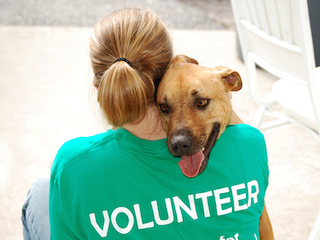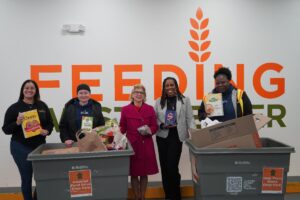 Last night I saw something on social media posted by a friend of mine. His dog was very sick and was rushed to the animal ER. My friend was beside himself with worry and terrified of what might happen. As of this morning, it was clear that the poor dog is bleeding internally and needs life-saving surgery that my friend can’t afford. He brought his dog, “Reese,” back home facing the reality that he would die if he couldn’t figure out how to get him the treatment he needed, and that he still might not survive, depending on what the surgery reveals. I know the pain of losing a pet; many of us do. My dog has been having some health issues the past few months himself, and while they are not life threatening, I am concerned, as we don’t know what the appropriate treatment might be yet. I, and many of you, can relate to the worry we have over our pets.
Last night I saw something on social media posted by a friend of mine. His dog was very sick and was rushed to the animal ER. My friend was beside himself with worry and terrified of what might happen. As of this morning, it was clear that the poor dog is bleeding internally and needs life-saving surgery that my friend can’t afford. He brought his dog, “Reese,” back home facing the reality that he would die if he couldn’t figure out how to get him the treatment he needed, and that he still might not survive, depending on what the surgery reveals. I know the pain of losing a pet; many of us do. My dog has been having some health issues the past few months himself, and while they are not life threatening, I am concerned, as we don’t know what the appropriate treatment might be yet. I, and many of you, can relate to the worry we have over our pets.
But Reese is not “just” a pet. Reese is a service dog for Phil, a veteran who left his leg and sanity in Iraq. He came home to such a long recovery – emotional almost more than physical – that he often couldn’t leave his bedroom. Reese brought him back among the living. He’s not a pet, he’s a lifeline, and he’s not an old dog; Phil is not ready to lose him (although I doubt he ever will be).
As Memorial Day approaches, and we remember those who gave everything in the name of freedom and patriotism, we can also reflect on the things we civilians can do for each other. Many of us want to help out in some way but don’t know how. We don’t know where to start volunteering, or if our skills are even needed. I can tell you that your skills are always needed…. there’s always something you can offer to an organization, even if on the surface it seems like you are lacking what they need. Sometimes we don’t even think about the organizations that need volunteers, then have a “eureka” moment when we realize not every task can be included in a salary budget.
So, I know Phil because after his new lease on life he started working as the kennel manager for the organization that paired him with Reese – ECAD (Educated Canines Assisting with Disabilities). For a while I was working with the dogs as a volunteer, bringing them home with me for weekends, or sometimes longer, and helping with their training. I was turned on to this idea by a friend whom I had met at another volunteer job, ushering at the Tarrytown Music Hall. Once I heard about Reese’s plight, my wheels started turning and I thought about where I could go for help. Because I do a lot of work with animals, I started there – texts and emails went out at lightning speed to people at NY Pet Rescue, Good Dog Foundation, and Guiding Eyes. I contacted a friend who worked at the VA for many years and who, with his wife, often does fundraising and charity work for homeless veterans and other organizations, since I was hoping they might have leads. My friend, who got me involved in ECAD, now does some golden retriever rescue, and I was hoping he might also have leads. A big shout-out to Brian Green of Sleepy Hollow Animal Hospital, who has also worked with ECAD, and as I write this, is trying to pull strings, get information, call in favors, and move mountains to get Reese his treatment.
My point is that through our volunteer work I found a network of people who have ideas, connections, and wallets, and together we will hopefully help Reese to live with Phil much longer. And I think I speak for all of us who are scrambling for ideas when I say that we feel good doing this because it feels good to help. The same thing that drives someone like Phil to volunteer for the military, despite knowing the risks and knowing that it can be a thankless job, drives people to help others without hope or expectations of reciprocity. Albeit, without the bravery that goes with risking bodily harm. I’ll work with a Great Dane, but I won’t go into battle. My hat is off to those much braver than I; I prefer to take the wimpy approach on the home front, but still feel a desire to help.
I happen to like doing things with animals. My mother was very big on volunteering for disabled or sick children. Other people clean up the parks. Some work in soup kitchens. We all get some satisfaction from this. I drive 35 miles each way every Thursday morning to massage newborn guide dog wannabes. At Christmas I get a cute calendar, and for Volunteer Appreciation Week I got a Dunkin’ Donuts gift card. I am not doing this for any financial reward, obviously. There’s no other reason but that it’s rewarding, interesting, and fun. First of all, newborn Labradors……the cuteness is reason enough to drive that far. But, also, my mother’s grandmother became blind in mid-to-late life, and this obviously affected her independence and mobility. To work with newborn dogs who might someday help people makes me feel that it’s come full circle somehow. When working with other service dogs in training, I once had a dog for about 2 weeks that I had to help train to remind a person to take her medication. That was a blast – fun and challenging, and that’s why I enjoyed doing it. And my own dog, Giuseppe, is a therapy dog. Even he sees the value in volunteering.
Of course we get something out of our efforts. Many friendships are made at volunteer jobs. A perk like seeing a great concert because I showed up early and helped people to their seats sweetens the deal a lot. Having a 7-day old puppy suck on my finger is pretty cool too. And it is extremely rewarding to see a dog “get it” when the beep goes off and she understands that she’s supposed to nudge me like she will her handler when medication time comes. So well-known is the reward in this that many organizations work with traumatized and neglected children, convicts, and the like, when training their dogs or looking for volunteers. It might be the first time the individual was able to feel such satisfaction and a sense of accomplishment when his trainee learns to open the door for a person who might not be able to use his arms. Just as satisfying as seeing that child you are helping reading his book more fluently because all that practice paid off, or sitting on a Board and getting stuff done, or doing pro bono work for someone who could not normally afford your services.
Knowing that an organization can’t run without its volunteers (Guiding Eyes, for example, has about 80 volunteers per week massaging and socializing the puppies), is very rewarding. And when we can help someone like Phil get leads on how to help Reese, and that help is coming from a network of volunteers and non-profit organizations, it feels that much better. Phil volunteered for service, and without our volunteer military where would we be? By volunteering at any local organization that inspires us, we have no idea where it will lead. In this case it has led to a cascade of brainstorming, check writing, and call making. It has led to a veterinarian calling connections and a public health expert writing up the story for the Huff Post. I felt helpless when I got the details of Reese’s plight, but giving some time and resources is making me, and probably everyone involved right now, feel a little less so.
As we think about those who gave everything because they were brave enough to do so, if you’ve been thinking you want to “do something,” then by all means, do it.
Barbara Kapetanakes, Psy.D. practices child, adult, and family psychotherapy in Sleepy Hollow.






